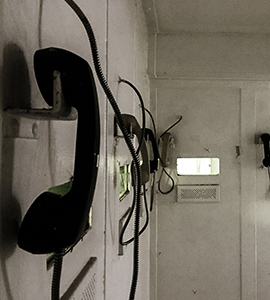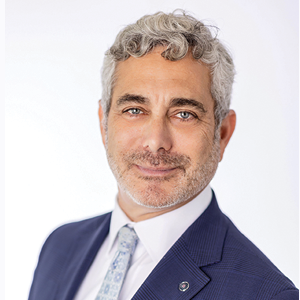Jail Calls – What You Should Know Before Speaking from or to Someone in Jail
As a Criminal Defense Attorney, one of the most commonly asked questions about jail calls I get is “are my phone calls to/from jail being recorded or listened to?"
 Unfortunately for prisoners in the State of Maryland (many of whom are still awaiting trial and have not yet (and may never be) convicted of a crime) and their family/friends who call them or receive calls from them, those calls will be recorded. Moreover, the recording of those calls is permitted by both State and Federal law.
Unfortunately for prisoners in the State of Maryland (many of whom are still awaiting trial and have not yet (and may never be) convicted of a crime) and their family/friends who call them or receive calls from them, those calls will be recorded. Moreover, the recording of those calls is permitted by both State and Federal law.
While the State of Maryland is a two (2) party consent state (i.e. both parties to a call ordinarily must consent to the call being recorded) if an individual is notified that they are being recorded, and they continue to speak on that line, then the conversation they have is subject to monitoring and preservation. While many jails use third-party vendors (jail telecom companies) for their prisoner telecommunications needs, all of those vendors report to law enforcement for the county in which the jail is located (or to Federal authorities when appropriate).
One-Sided Consent
In addition to the “this call will be recorded” warning that every detention center has for its jail calls, the Maryland Annotated Code, Courts & Judicial Proceedings Article, Sec. 10-402 permits the State (and/or its proxy, which in the case of the jail is a telecom provider) to record a call if one party gives consent to the calls being recorded.
Prisoners of county detention centers' acceptance of the terms of the use of the jail phone give the State the authority to record and potentially use any and all information obtained from jail calls. This is the reason that experienced criminal defense attorneys never speak to their clients on a standard jail telephone; even the attorney's calls are likely to be recorded. Instead, attorneys contact the jail and with the proper credentials, may receive calls from a secure telephone that is not recorded.
Boston v. State
In the relatively recent Maryland Court of Special Appeals decision of Boston v. State, 235 Md. App. 134 (2017) prosecutors were allowed the use of a jail call recording in a criminal prosecution against a non-prisoner, outside of the detention center who had been “3rd partied” into another person’s jail call with a prisoner. Even though Mr. Boston, who was not on the phone when the jail’s telecom provider issued the warning to the caller that the call was being recorded, his statements which were recorded during that jail call were permitted in a prosecution of him.
In other words, the Maryland Court of Special Appeals opined that not only is it legal to record people who do not give consent to a jail call, those calls and their contents may be used in a legal proceeding against the person who is not in jail and who never consented to be recorded.
Finally, Federal Law carves out an exception to the recording of jail calls even when the person who is not locked up does not give consent to be recorded. Under Federal law, when a prisoner consents to have a telephone call in which he is participating recorded, it is not a violation of the Federal Wiretap Act when the other participant or participants to the call do not consent. 18 U.S.C.A. Sec. 2510 et. seq.;
The Bottom Line
If someone calls you from jail, anything you say can and almost certainly will be recorded. Should the content of that conversation catch the attention of the authorities, you could yourself be prosecuted and the jail call in which you participated as an outside conversant may be used against you.
Therefore, when speaking to a prisoner on a jail phone, stick to simple, mundane topics. Discuss the children, the weather, your favorite movie, but under no circumstances should you discuss the defendant’s case, any other crimes, or any witness testimony, reactions, actions, etc.
Discussions that may relate to the crime for which the prisoner is being detained, or discussions that may in any way relate to any other crime will almost always find their way to law enforcement and the prosecutor’s office. Not only can recorded jail phone conversations be used against the prisoner, but they also frequently result in problems for the person on the other end of the line – even if they did not agree to be recorded.
As a rule, nothing should ever be discussed on a jail call that you would not discuss with a police officer and prosecutor sitting next to you.
If for any reason you are concerned about a jail call you have had and need to speak to an attorney, call our office today or schedule a free consultation.


